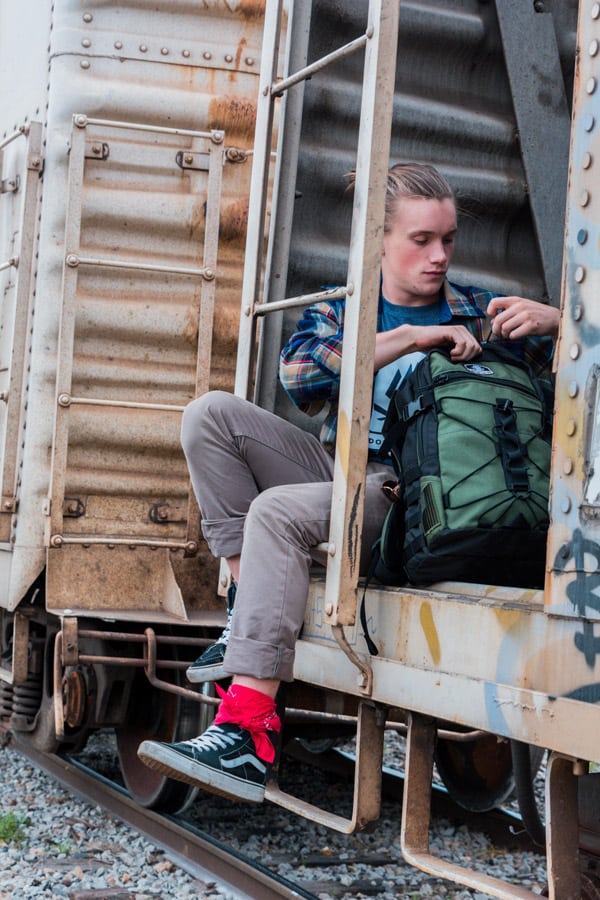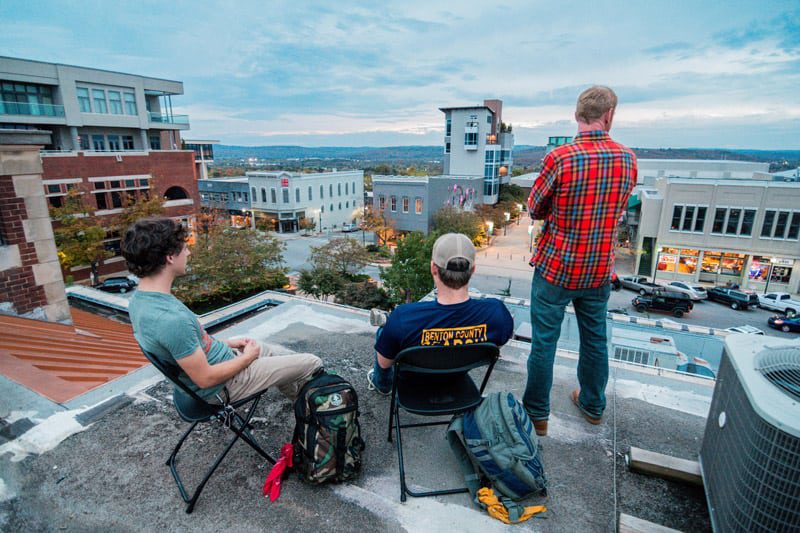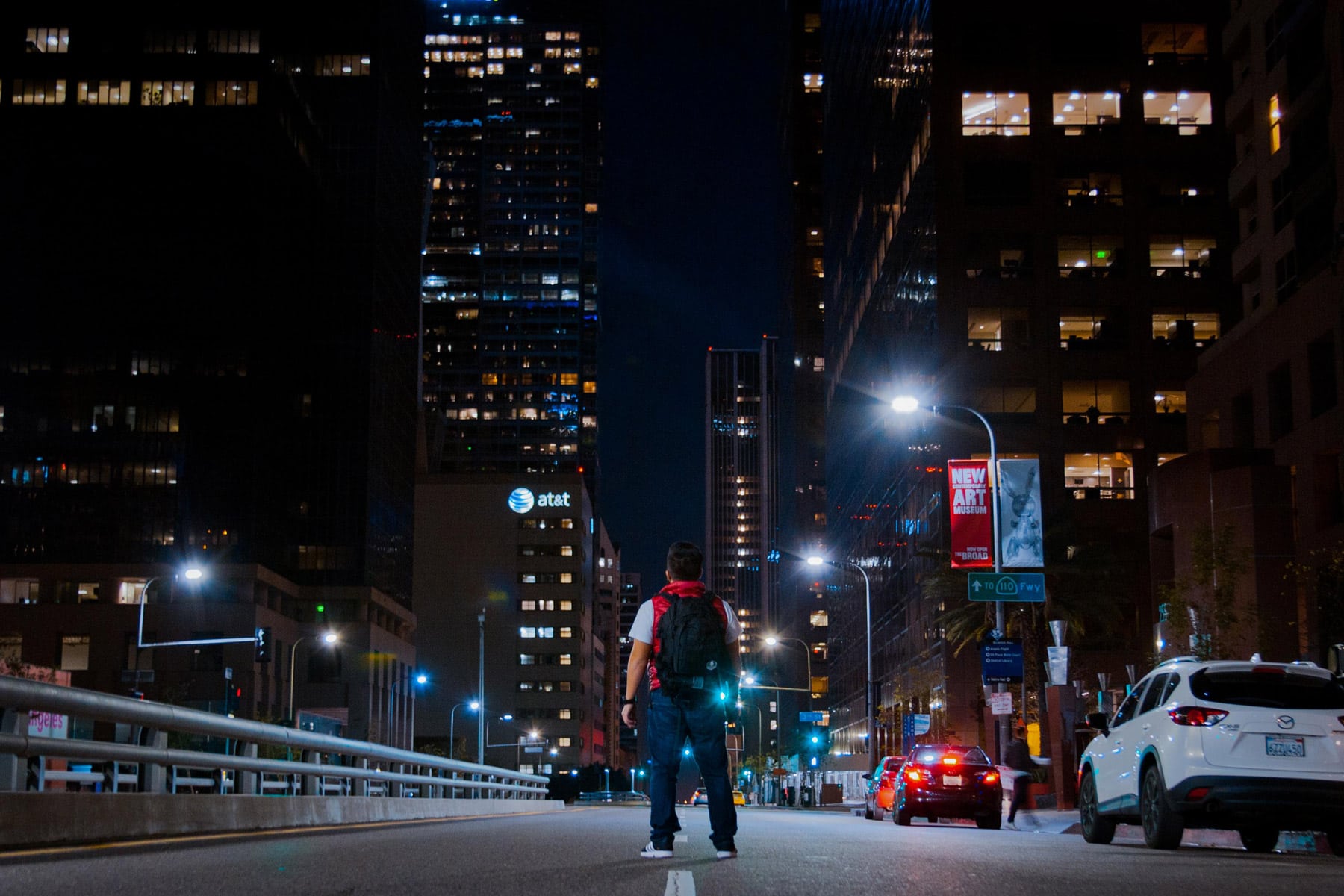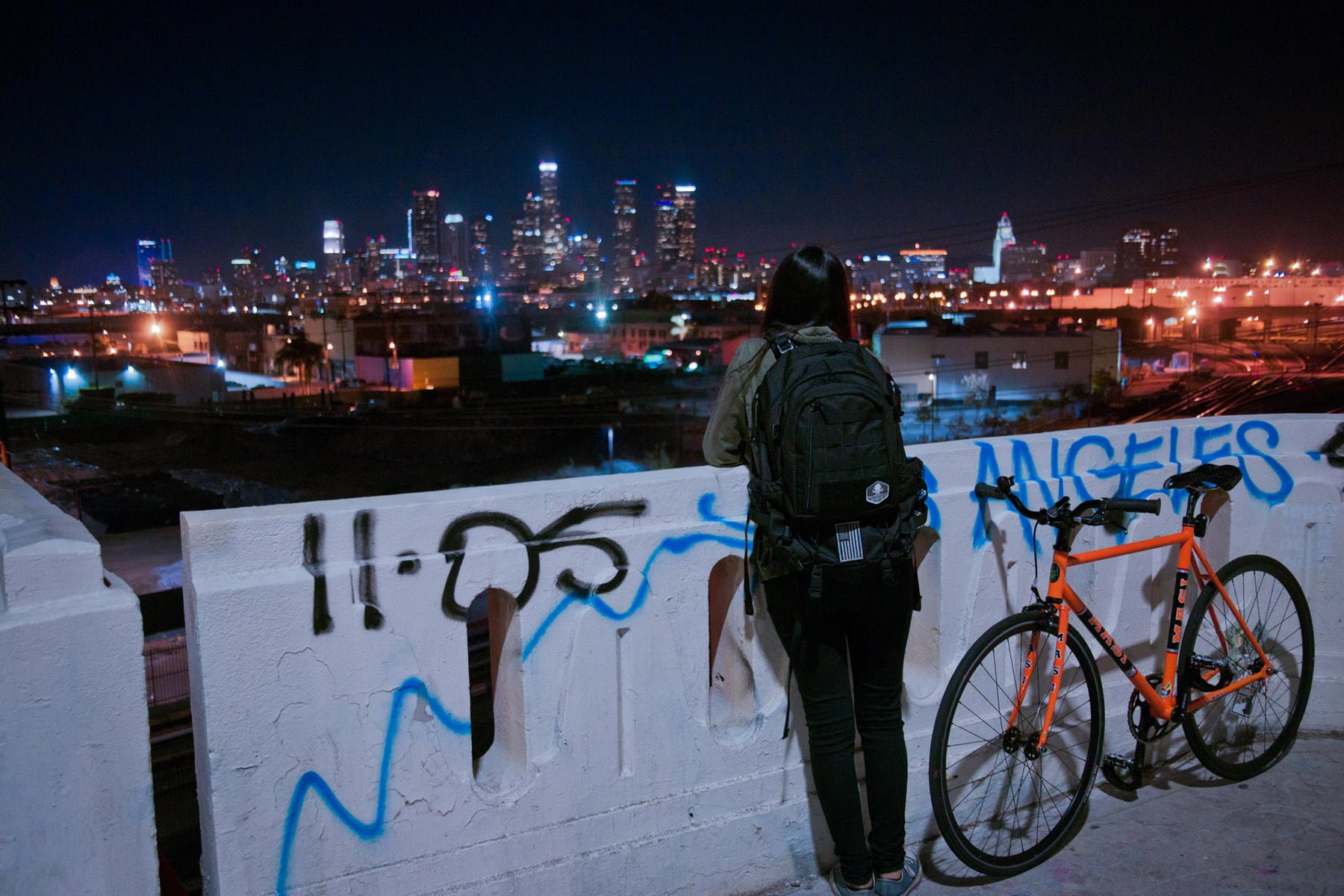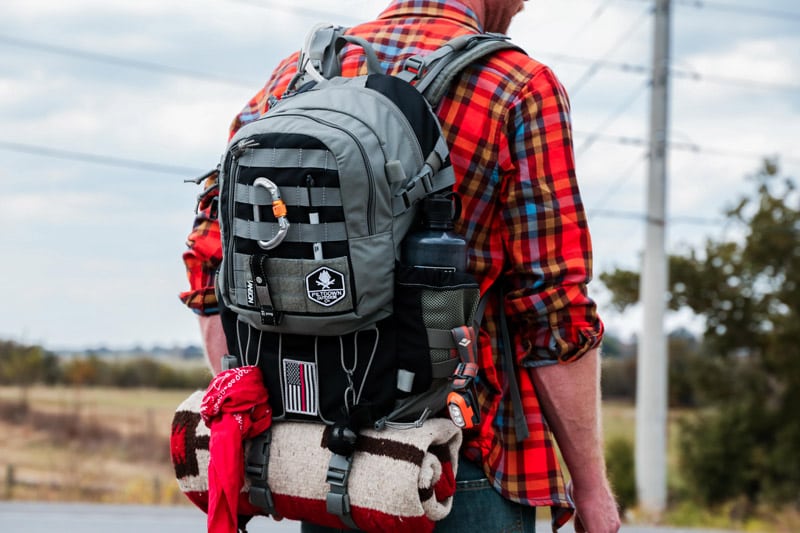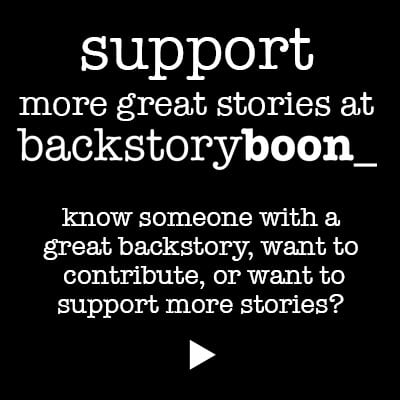According to their website, “Piltdown Outdoor Co. is what happens when you start a company without adult supervision.” Inside the company’s base in Springdale, Arkansas, you might find Trey Anson, CEO and head adventurer at Piltdown, or his little sister, or his firefighting buddies cutting out fabric or sewing on zippers—making backpacks. The operation is small, but growing under Trey’s leadership.
When we met Trey, he spent the first few minutes telling us why we had a vintage Motobecane road bike sitting in their shop—he couldn’t find the right color handles for the brakes. He knows his stuff, and he’ll do whatever he has to do to get what’s best. That’s how Piltdown got started: he knew exactly which features he wanted in a backpack, but no outdoor companies were making what he was looking for. He decided to make it himself.
For all his specificity in gear, Trey is a pretty unassuming guy. On the day of our interview, he wore a Piltdown sweatshirt with faded jeans and workboots. He wears a Tom Selleck mustache, and he wears it well. He stands with his feet planted and his arms crossed, and you can see his brain whirring as you talk to him.
This is Trey Anson…
On fulfilling a childhood dream
For a time, I was a hobo, a hitchhiking bum. My map was from Kansas City west and back, twice. I traveled by foot and car. I took hundreds of rides with strangers. It was for the year of 2007, give or take a couple weeks. I wasn’t married at the time. I was twenty-five.
It was something I always wanted to do. You know, you’re fourteen and you hear these stories of what used to happen, how people used to live. So I wanted to hitchhike. When I started to circulate that idea as a possibility, people of authority, or people older than me, with more experience than me, told me that it was impossible, that it’s not what people did anymore, that times had changed, that it would be like wanting to take a covered wagon west—it just doesn’t fit anymore. Then, you know, as you get older, you begin to look back at who told you things and question them as an expert on the subject. At some point I realized that the people who told me I couldn’t hitchhike had zero experience hitchhiking.
At some point, I looked around, and I was at a place where one more step and I would be in a place where I couldn’t do it. I was getting to the age where I was starting to make decisions that were permanent, or at least semi-permanent—the next girlfriend was going to get me for sure. So there was an evening where I was in a ridiculous situation: was I going to go out and do the same thing that I’d done a hundred times before, or was I going to look at what it would take to do this? I had two months, I think, left on my lease. Was I going to look for a new place or not? I didn’t. There was a period where I sold what I owned, and we had hobo barbecues with the money that we made, and I gave away whatever I had that other people wanted, I pared it down, and then one day it was the day.
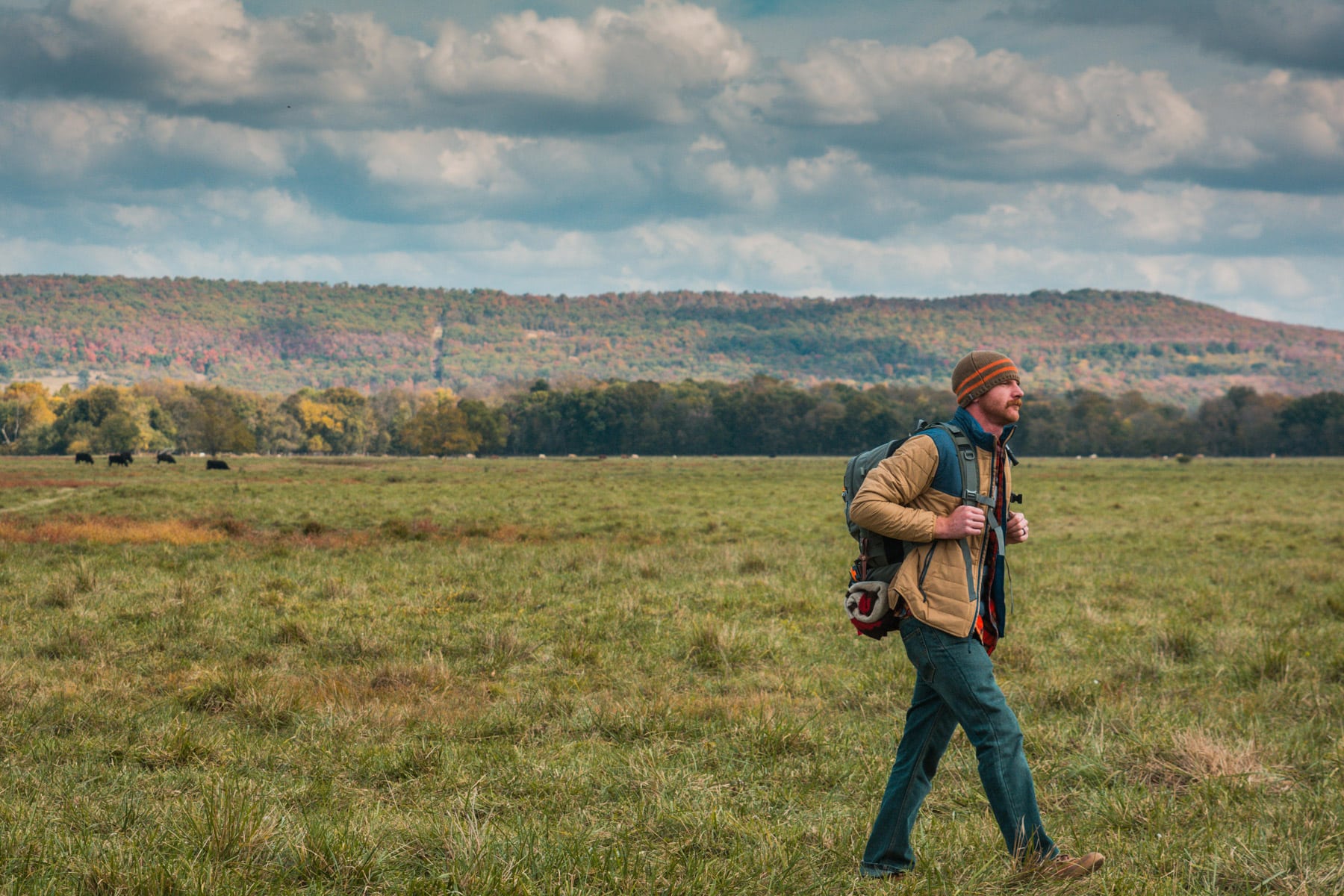
On what it was like to be a hobo for a year
Most people think it would be horrible. My personal experience—now, I don’t look like the cartoon hobo—people were extremely nice to me. I slept in some very comfortable beds, I had showers fairly frequently. People would take me to their houses, all the time. They were super cool. I definitely turned down rides. It didn’t happen often. I probably turned down ten total, maybe once a month. It happened more frequently that people offered a handout and I declined that. That happened a lot. Those people from my childhood couldn’t have been more wrong about whether or not you could hitchhike—it’s super easy. I got everywhere, always. A lot of times, people wanted an audience for whatever crazy thing they were going to go out and do. They were like, “I’m going to pick this dude up, and for thirty-seven miles, he’s sitting there.” And I’m sitting there, and what are you going to say? Sometimes people need to talk. I heard a ton of interesting stuff.
On Piltdown’s beginnings
There were several stages. The idea for the products that we make happened in 2007. A year and a half ago I started sewing bags, and we incorporated in March 2015. The idea to start a backpack company was not a thing that I had been building—I wasn’t like, “someday I’m going to start a backpack company,” or “wouldn’t it be cool to do that.” I was looking for a bag, I couldn’t find it. I had a closet full of bags that I didn’t like. Some of what I do is a really specific kind of hiking, and I just couldn’t find that fit. So my wife and I were at a gear store one day, and she came over to find me looking at another bag, and it was whatever number of time that had happened. I think I repeated a speech that I gave her about why I needed this bag after she said, “Don’t you have enough bags?” She called me on it. But the joke is on her! I didn’t buy the bag at that time. Instead, she said she had a sewing machine at the house, and why didn’t I try to make the actual bag that I wanted, not just something close to it. I agreed in principle in the store to do that and not buy another $100 bag. Then I ended up quitting my job and doing this 120 hours a week, and it’s this whole thing now. So maybe, in her history of the event, letting me buy that bag might have been the easier move for her. That’s how far we took it. “Want me to make a bag? Sure, I’ll sell a thousand bags.” I made one bag, it was horrible. I made a second bag, it wasn’t as bad. Eventually I had the bag that I liked, that was the bag that I wanted just for me. Then somebody asked if I’d make them one, then so forth and so on.
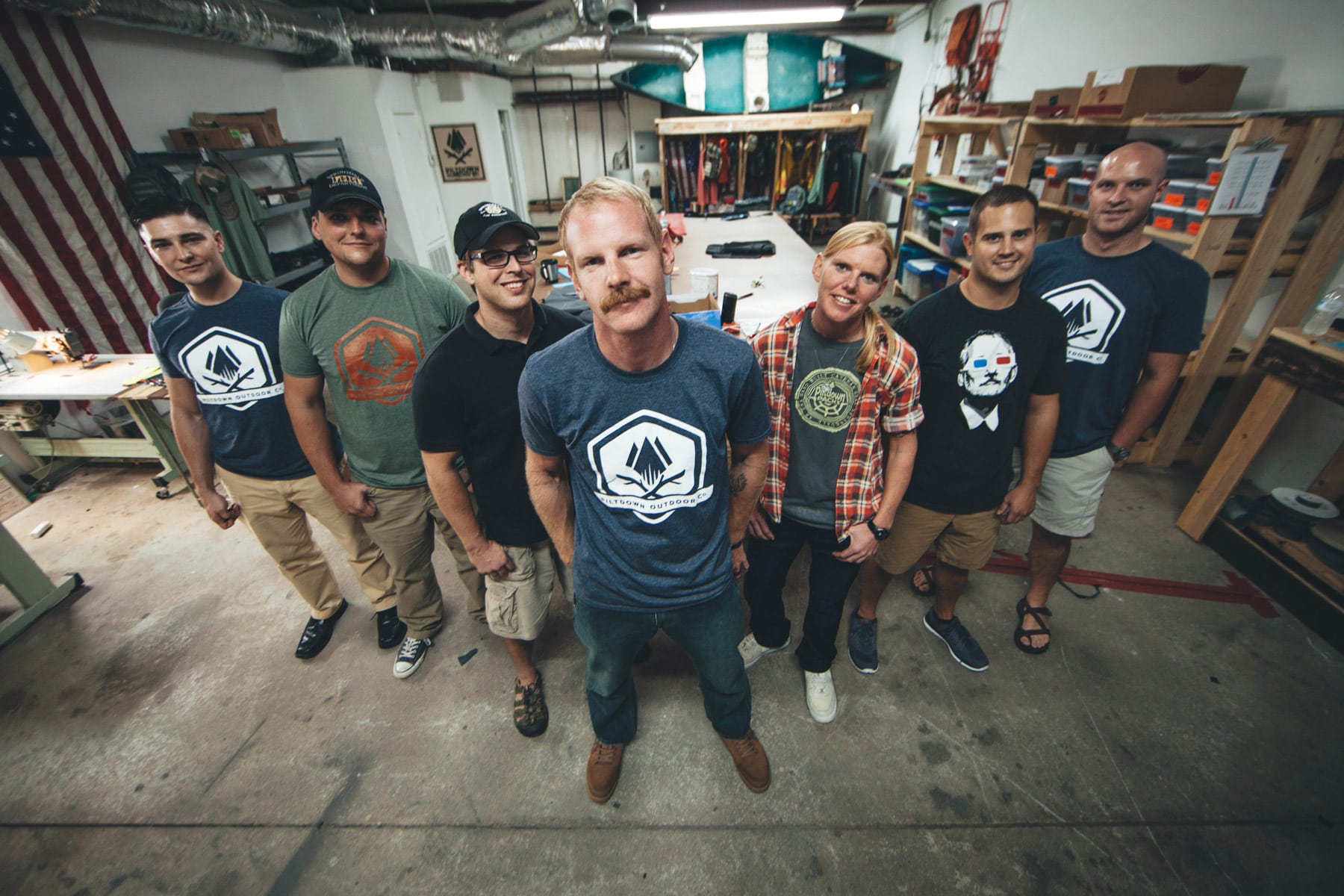
On why he hired firefighters for a startup
Hiring people for a business and hiring people for a startup are two different things. None of us, me included, would be hired to do the jobs that we do at an existing company. I wouldn’t even get the internship job. But when you’re looking at how to start a startup, pretty much across the board the warning is that in the beginning you’re not going to be able to afford anybody, so you’re going to want to bring in your family and your friends because they’re the ones who believe in you and they’re the only ones who will do it! In the beginning, my company was worth nothing—zero dollars. I was asking people, “could you help me out for twenty or thirty hours a week? I’ll give you shares of nothing. Someday they’ll be worth money, I think.” So I was asking them to trade in a lot. But the idea is then that as soon as you grow, you have a whole stable full of people who you have to fire, and they’re all the people who are closest to you. A lot of startups get into that situation, where you have fire your brother, or you tank! Across the board, don’t do that—don’t bring in your family. I did though. The difference is that the guys I brought on, I knew from the fire department, and a firefighter has to have a certain set of skills. The mantra in the fire service has always been “You adapt and overcome.” Whatever the thing is, you have to handle it. People die in a ton of crazy ways, people get hurt in a ton of crazy ways, houses burn, bombs, everything—you show up and you don’t get a plan for it. Here are the factors you’re going to have to deal with—you have thirty seconds to decide what you’re going to do, and then I hope you’re right, because it costs a lot to be wrong. You never get to say, “Let’s let this one burn down because we don’t have the right tools,” or “we’re not here at the right time, let’s let this one go and live to fight another day.” Can’t ever say that. So what makes a good firefighter is the ability to say, “This is what I’ve got, this is my problem, let’s make it work.” So I knew all of these guys could do that, and in a startup, that’s what you’re doing. You bring this guy in to do one thing, but really this is what has to get done today, and if you mess it up, it might be the end of it. A lot of startups start the clock on themselves because they make a bad decision in month two, and in month six, that’s it. You made a mistake and it’s just a clock in the background: eventually you’re going to get to a size where somebody’s going to be able to take your company because you didn’t copyright correctly, you’re not going to be able to compete in this market because you’re this kind of company, there’s a lot of stuff like that. So these guys are my brothers for sure, but the reason I brought them in was because I knew them to be people who showed up to work and whatever was thrown at them they got done. For the startup, that’s what I needed, and that’s what I got, and that’s who my team is. A bunch of guys doing things they would never be hired to do, and doing pretty well at it. We’ve been pretty successful so far.
On his daily ritual
The amount of time is different every day. Best case is one to three hours, but whatever it is, I’m by myself for a period of my day. The idea is, I can get a ton of feedback, I can get a ton of help—people are definitely willing to share their opinions about what I should be doing. There has been no shortage of people telling me what I should do—what worked for them one time, twenty-five years ago, so I should definitely do that now. I attempt to take in as much advice as I can. I get a lot of help—there are a lot of people involved in this thing. So far it’s worked because we’ve followed a singular vision. So every day I have some time to myself where I put everything that I’ve heard through that vision. Does this match with what we want to do? It’s pretty easy to be like, “I thought this was the best idea, but somebody convinced me, so we’re going to do this.” Then I’m standing a little further from the line. Then I get another bump left, and another bump left, and six months from now I don’t know what I’m talking about, I’m selling purses and pencil bags, and I don’t even know how I got here. It’s one compromise after another. You can step left and right a little bit, there’s nothing wrong with that, but you have to know, “okay, I just took a step right, so my next step better be in line or left, because if I go right again I’m in trouble.” So I try to have at least an hour, but every day I always have some time where it’s just me.
On his personal vision
I just want to be good and be happy to be me. That’s the plan. I want to be psyched about what I’m doing when I wake up, that I’m doing good and I know it, that I’m a positive in the world. And I want to have a little fun, maybe. It’s nice when you can cross those two. It’s a tough get, but if you can get paid to do the thing that you like and it can be good? You know, I talked about leaving the fire service—that job was so fun, super good, and you catch a check. That’s nice. It’s pretty hard to waste your work life and make up for it on nights and weekends. That’s a losing battle.

Emalie Cockrell
Contributing Author
Emalie Cockrell is a writer located in Fayetteville, Arkansas. She pursues writing fiction, as well as writing non-fiction about nature, traveling, running, Christianity, and real stories about real people. Watch for more of her work here on Backstory Boon.



